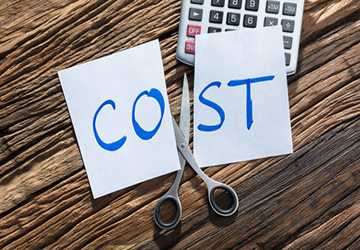Do expenses creep up no matter how much you earn? Do retirement, college, or other financial goals feel abstract and unachievable? Developing a clear written financial plan can transform these pain points from overwhelming to totally manageable! In this post, we'll explore seven enormous benefits gained by dedicating time to chart your income, savings, investment, debt repayment and other money action items in an organized document. You’ll also discover how the strategic one-time effort increases confidence, security and wealth over the long haul. Learn to turn scattered finances into a clear roadmap for reaching your dreams!

7 Benefits of Creating a Personal Financial Plan
Developing a clear written financial plan can transform scattered money matters into a cohesive system for funding your dreams! Here are the seven convincing benefits of creating a personal financial plan.
Define Concrete Short- and Long-Term Money Goals
Precisely quantifying targeted savings amounts for emergencies, retirement, education, travel, real estate purchases and more creates defined milestones to work toward actively. Set 1-year, 5-year, and 10-year money goals across different categories as part of the planning process. Having measurable benchmarks drives faster financial achievement versus just vague good intentions.
Match Expenses to Values, Not Impulse
A written plan that captures all outgoing costs alongside income earned finally allows aligning spending habits with financial priorities instead of impulse and marketing tricks. For example, should you buy the latest iPhone or invest that money in starting your side business idea? With a plan, you can allocate limited funds to what matters most.
Build Wealth Faster Through Compounding Returns
Serio’s wealth creation depends on the power of compound interest working in your favour over decades. The earlier money is saved and invested effectively, the more years it has to grow exponentially at increasing rates through market returns and reinvested earnings. A financial roadmap focused on consistently funding investment accounts from the beginning can help maximize this magical wealth accelerant.
Improve Credit Profile to Save Money
Good credit means lower interest costs on credit cards and auto loans, mortgages, and business financing offers for decades. An early financial plan can incorporate focused tactics for systematically building/rebuilding credit history to reach 750+ scores quickly. The rewards for your creditworthiness will pay off daily in thousands saved over a lifetime.

Reduce Financial Arguments in Relationships
For shared finances mainly, unclear expectations around things like amounts individually spent or secretly saved can quickly erode trust and intimacy in even the most vital relationships when debts, savings or earnings details feel opaque. Partners with very different approaches to money may find themselves frequently arguing. Developing an openly communicated financial plan removes feelings of secrecy by aligning priorities, setting mutual goals, and selecting compromises on spending differences.
Prepare for Difficult Times and Job Changes
Loss of employment, unexpected home repairs, illness, accidents, and economic recessions happen to everyone at some point, sabotaging even the best-laid financial plans created during stable earning years. Yet you'll weather storms without panic IF you use an earlier documented money map as crisis guidance for navigating emergency decisions. Financial plans force brutal "what if" conversations around priorities, resources, and burden levels so responses become reasoned strategy versus panicked desperation.
Design Your Ideal Lifestyle
What does your perfect future look like - travel adventures overseas once retired, owning a cabin hideaway up north, starting your own small business? Too often, money habits occur by default instead of intentionally designing life around fulfilling experiences that matter most. Identify your ultimate lifestyle visions in detail within a financial plan so everyday saving and spending shifts toward deliberately creating that life rather than just letting it happen via random chance. Get specific on paper today to fully fund the future situation that would bring lasting happiness.
How do you get started on your financial plan?
Creating a financial plan can feel daunting if you need help knowing where to start. Follow these steps to kickstart the process: First, gather recent bank and credit card statements, tax returns, debt info, insurance documents, and income stream details over the last year. Having all this financial data in one place provides visibility. Use a spreadsheet or online money management system to compile it. Next, document your current total assets, like savings and investments, and liabilities, like loans and expenses. This snapshots your overall net worth as a baseline for future tracking. Then, write down specific long-term goals you want to achieve with projected costs and target dates, like "Save $50k for a down payment on a home by 2028." Concrete numbers motivate progress. Finally, outline the monthly and yearly actions across saving, debt repayment, income boosting, and expense reduction to reach monetary milestones while still enjoying lifestyle pleasures along the journey!
Tips for Sticking to Your Financial Plan Long Term
The best financial plan falls apart without discipline to adhere to the money priorities outlined. Maintain motivation by:
l Sharing the written plan with supportive friends and family to bolster accountability
l Creating visual trackers of savings and debt repayment to demonstrate progress
l Setting up automatic transfers the day after payday to “pay yourself first” into savings
Using apps to make fast cost/benefit analyses at the point of purchase to avoid impulse buys
Revisiting the plan annually or with significant life changes to adapt money goals as needed before veering too far off track. An agile system for staying on course empowers your freedom to enjoy life without going broke!
Conclusion
As finances evolve, revisit, and update your documented money map to keep pursuing the life balance you desire. But make sure to begin the essential process of looking holistically at dollars coming in and going out today. Making a personal financial plan immediately starts you on the path toward mastering cash flow to thrive securely while realizing your most significant visions for career, family, travel, and creative outlets!
FAQs
Q. How detailed should my first financial plan be?
Ans. Start by documenting high-level money goal amounts and target saving timelines. Subsequent revisions can incorporate more granularity on exact accounts, products, and tactics. Maintain flexibility as circumstances change!
Q. How often should I review and revise my plan?
Ans. Revisiting your documented plan at least annually ensures your financial playbook stays relevant. Additionally, revise whenever life changes like job shifts, moves, marriages or new priorities occur.















